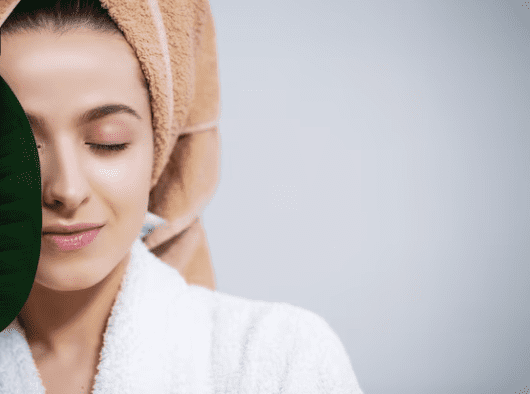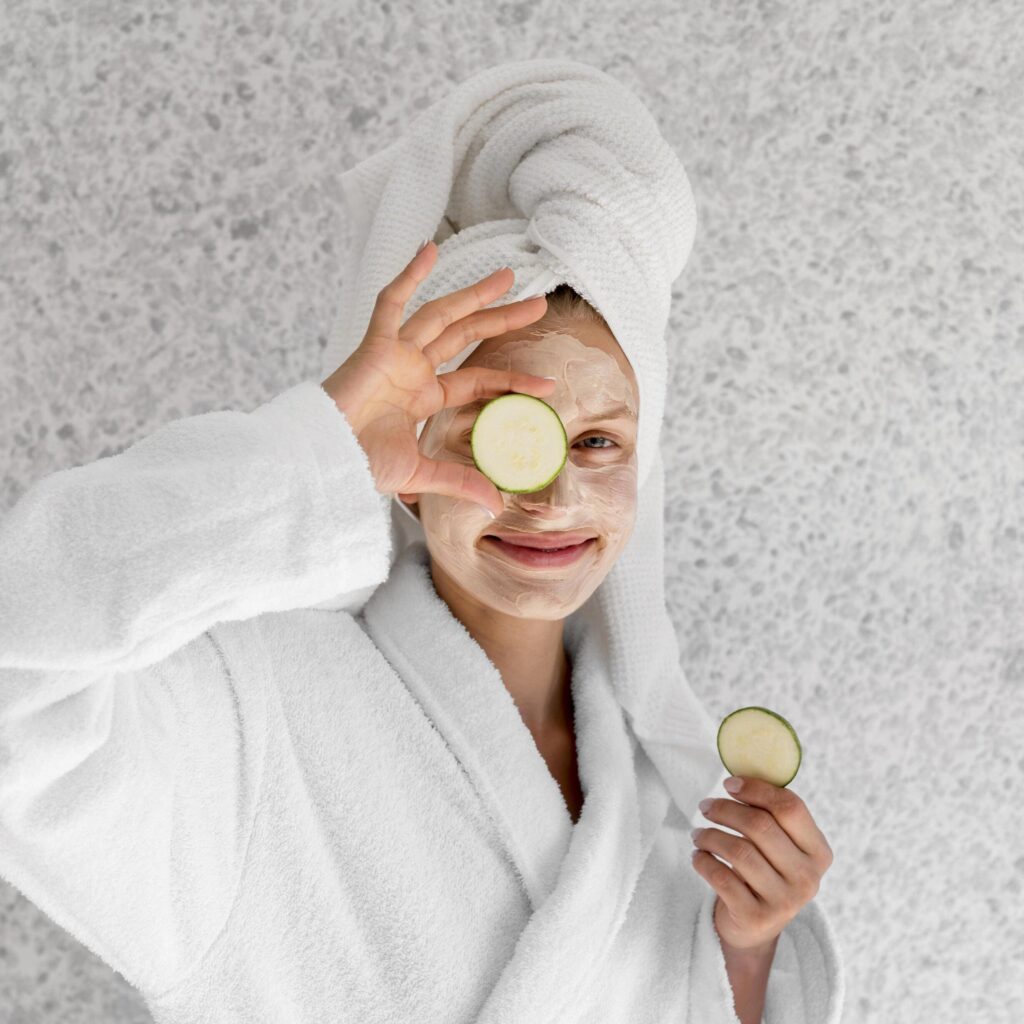
Welcome to your ultimate guide to skin care! Taking good care of your skin is essential for maintaining a healthy and radiant complexion. Whether you are a skincare novice or an experienced enthusiast, this guide will provide you with all the information you need to achieve your skin goals.
Healthy skin requires daily attention and a routine tailored to your unique skin type and concerns. In this guide, we will cover the fundamental aspects of skin care and provide you with a comprehensive list of tips and advice to help you get started on your journey to healthy and beautiful skin.
Key Takeaways : (Basics of Skin Care)

Regular skin care routine is essential for healthy and radiant skin
You need to customize your routine according to your skin type and concerns
A proper cleansing, moisturizing and protection plans should be followed
Consistency is key – maintain a regular routine to see results
Natural remedies can enhance the health and beauty of your skin
Understanding Your Skin: Types and Conditions
Everyone’s skin is unique, and understanding your skin type is essential for developing a personalized skincare routine that works for you. There are five primary skin types: normal, oily, dry, combination, and sensitive.
In addition to skin types, there are several common skin conditions to be aware of. Acne is prevalent among both teens and adults and can appear as blackheads, whiteheads, or cysts. Rosacea is a chronic skin condition that causes redness, bumps, and visible blood vessels, while eczema causes dry, itchy patches on the skin. Hyperpigmentation is also a common concern, with dark spots and patches appearing due to sun exposure or other factors.
By understanding your skin type and specific skin concerns, you can choose products and treatments tailored to your needs and achieve healthy, radiant skin.
Normal skin is well-balanced and doesn’t require too much maintenance, while oily skin produces excess sebum and is prone to acne. On the other hand, dry skin lacks moisture and can become flaky and irritated. Combination skin is a mix of oily and dry, while sensitive skin is easily irritated by external factors like fragrance and harsh ingredients.
Daily Skin Care Routine for a Clear Complexion
A daily skin care routine is essential for achieving and maintaining a clear and healthy complexion. Follow these essential steps to keep your skin looking its best:
Cleanse :
Start by using a gentle cleanser to remove dirt, oil, and makeup from your skin.
Tone: Use a toner to balance your skin’s pH levels and prepare it for the next steps of your routine.
Serum: Apply a serum that contains antioxidants or other active ingredients to target specific skin concerns.
Moisturize: Choose a moisturizer that is suitable for your skin type to provide hydration and nourishment.
Sunscreen: Always apply sunscreen with at least SPF 30 to protect your skin from harmful UV rays.
When selecting products for your skin care routine, it’s important to consider your skin type and any specific concerns you may have. Look for products that are formulated for your skin type, whether it’s oily, dry, or combination.
Product Recommendations:
Step Product Name
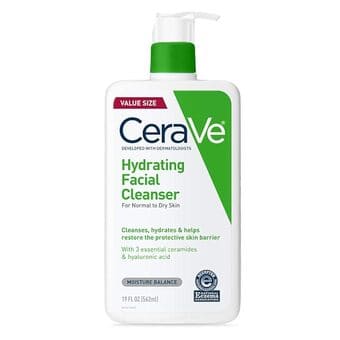
Cleanse CeraVe Hydrating Facial Cleanser
This product is non-comedogenic, fragrance-free, and developed with essential ceramides, promoting effective cleansing while ensuring skin hydration and protection.

Tone Thayers Witch Hazel Toner
Thayers Witch Hazel Toner tightens pores, balances skin pH, and provides a natural astringent effect, leaving skin refreshed and clarified without irritation.
Serum The Ordinary Niacinamide 10% + Zinc 1%
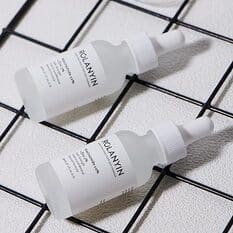
The Ordinary Niacinamide 10% + Zinc 1% serum reduces blemishes, controls oil production, and improves skin texture with niacinamide while zinc offers additional sebum regulation, fostering a clearer and smoother complexion.
Moisturize Neutrogena Hydro Boost Gel-Cream
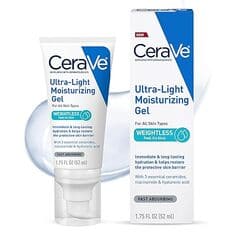
Neutrogena Hydro Boost Gel-Cream moisturizes intensely, replenishing skin’s hydration with a lightweight, non-greasy formula, promoting a smooth, supple, and refreshed complexion.
Sunscreen La Roche-Posay Anthelios Ultra-Light Fluid Face Sunscreen SPF 60
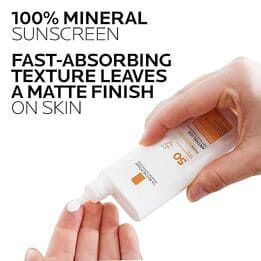
La Roche-Posay Anthelios Ultra-Light Fluid Face Sunscreen SPF 60 provides high sun protection, with an ultra-light, non-greasy texture that absorbs quickly. It safeguards against UVA and UVB rays, preventing sun damage and promoting skin health.
By incorporating these essential steps into your daily skin care routine with the right products, you can achieve a clear and healthy complexion.
Cleansing :
The First Step to Beautiful Skin
Keeping your skin clean is essential to achieve and maintain a radiant complexion. Cleansing is the first step you should take in your daily skincare routine. It helps to remove impurities such as pollutants, dirt, and excess oil that can clog pores, cause breakouts, and dull your skin’s appearance.
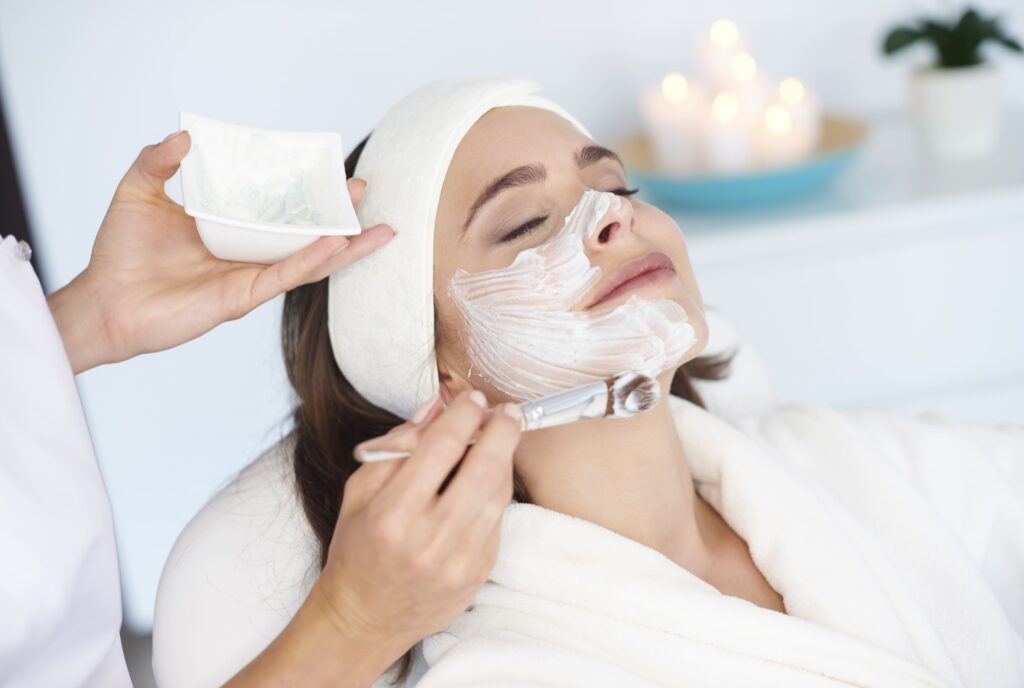
When choosing a cleanser, it’s essential to consider your skin type. If you have oily skin, opt for a foaming or gel-based cleanser that can help to control oil production. If you have dry skin, choose a cleanser that is creamy and hydrating to avoid stripping your skin of its natural oils.
To properly cleanse your skin, start by wetting your face with lukewarm water. Apply a small amount of cleanser on your fingertips and gently massage it onto your face in circular motions. Rinse with cool water and pat your skin dry with a clean towel. Remember to cleanse your skin twice a day, in the morning and before bed, to keep it fresh and glowing.
Pro Tip:
Double cleansing is an excellent way to ensure that your skin is thoroughly clean. Start with an oil-based cleanser to remove impurities such as makeup and sunscreen, then follow up with a water-based cleanser to eliminate any remaining dirt and oil.
Moisturizing: Nourishing Your Skin
Moisturizing is an essential step in any skincare routine, as it can help hydrate and nourish your skin, leaving it soft, smooth, and radiant. When you moisturize your skin, you help to keep it healthy and protected against environmental stressors, such as harsh weather, pollutants, and UV rays.
The benefits of moisturizing are numerous, but how do you choose the right moisturizer for your skin type? Start by identifying your skin type, whether it is dry, oily, combination, or sensitive. Look for a moisturizer that is specifically formulated for your skin type and contains nourishing ingredients, such as hyaluronic acid, glycerin, vitamin E, and ceramides.
When incorporating moisturizing into your routine, it is important to apply it to your skin when it is slightly damp, so it can penetrate deeply and be most effective. Apply a pea-sized amount of moisturizer to your face and neck, using gentle circular motions to encourage absorption. You should moisturize your skin twice a day, in the morning and at night, for optimal results.
Not only can a good moisturizer hydrate your skin, but it can also act as a barrier, preventing moisture loss and locking in hydration. By moisturizing your skin regularly, you can nourish and protect it, promoting healthy, glowing skin.
Exfoliation: Rejuvenating Your Skin
If you’re looking to achieve a brighter and smoother complexion, exfoliation should be an essential part of your skincare routine. Exfoliating your skin removes dead skin cells, promoting cell turnover and leaving your skin looking rejuvenated.
There are several different methods for exfoliating your skin, including mechanical exfoliation, chemical exfoliation, and enzymatic exfoliation. Mechanical exfoliation involves using a scrub or brush to physically remove dead skin cells. Chemical exfoliation uses ingredients like alpha-hydroxy acids (AHAs) or beta-hydroxy acids (BHAs) to dissolve dead skin cells. Enzymatic exfoliation relies on enzymes like papain or bromelain to break down dead skin cells.
When incorporating exfoliation into your skincare routine, it’s essential to choose the right method for your skin type and to avoid over-exfoliating, which can lead to irritation and sensitivity. Experts recommend exfoliating once or twice a week, depending on your skin’s needs.
The Benefits of Exfoliation
In addition to promoting cell turnover and revealing a brighter complexion, exfoliation can also help reduce the appearance of fine lines, minimize the appearance of pores, and improve skin texture and tone. By removing dead skin cells, exfoliation can also increase the efficacy of your other skincare products, allowing them to penetrate deeper into the skin.
Choosing the Right Exfoliator for Your Skin Type
When choosing an exfoliator, it’s important to take your skin type into consideration. If you have sensitive skin, consider using a gentle, enzymatic exfoliator. If you have oily or acne-prone skin, a chemical exfoliator with salicylic acid may be more effective. And if you have dry or mature skin, opt for a gentle, hydrating exfoliator that won’t strip the skin of its natural oils.
Sun Protection: Shielding Your Skin
Sun protection is vital to maintaining healthy skin. Exposure to harmful UV rays can cause skin damage, premature aging, and potentially lead to skin cancer. To protect your skin, you should take appropriate measures when exposed to the sun, particularly during the peak hours of 10 am to 4 pm, when the sun’s rays are strongest.
The Benefits of Sun Protection
Protecting your skin from the harmful effects of the sun can have significant benefits, including:Preventing sun damage, such as sunburn, dryness, and discoloration
Reducing the risk of skin cancer
Slowing down the aging process, preventing fine lines and wrinkles
How to Protect Your Skin from the Sun
There are several ways to protect your skin from the sun, including:
Wear protective clothing, such as hats and long-sleeved shirts
Use sunscreen with a broad-spectrum protection of at least SPF 30 and reapply every two hours or after swimming or sweating
Avoid tanning beds, as they emit harmful UV rays just like the sun
Picking the Right Sunscreen
Choosing the right sunscreen is essential to effectively protect your skin from the sun. Here are some tips for selecting the right sunscreen:
Sunscreen Rating SPF Range Sun Protection
Low 2-14 Offers minimal protection against UVB rays
Medium 15-29 Offers moderate protection against UVB rays
High 30-50 Offers high protection against UVB rays
Very High 50+ Offers very high protection against UVB rays
Remember, sun protection is crucial to maintaining healthy and radiant looking skin. Take appropriate measures, use the right sunscreen, and avoid the sun during the peak hours to protect your skin from the harmful effects of UV rays.
Targeted Treatments: Addressing Specific Skin Concerns
While a good daily skin care routine is essential, some skin concerns require more targeted treatments. Here are some common skin concerns and the treatment options available:
Skin Concern Treatment Options
Acne
Topical treatments containing benzoyl peroxide or salicylic acid
Isotretinoin for severe acne
Oral antibiotics in some cases
Aging
Retinoids to increase cell turnover and reduce wrinkles
Antioxidants like vitamin C to protect against free radicals
Hydrating serums to plump up the skin
Hyperpigmentation
Topical creams with hydroquinone, kojic acid or alpha hydroxy acids
Laser treatments
Chemical peels
Sensitivity
Gentle, fragrance-free products
Barrier repair creams to strengthen the skin barrier
Prescription creams to reduce inflammation
It’s important to consult with a dermatologist or esthetician to determine the best treatment plan for your particular skin concern. With the right targeted treatment, you can address your specific skin issue and achieve a healthier, more radiant complexion.
Lifestyle Habits for Radiant Skin
When it comes to achieving healthy and beautiful skin, your daily skincare routine isn’t the only factor to consider. Your lifestyle habits can significantly impact your complexion as well. Incorporating the following habits into your daily routine can help you achieve that radiant, glowing skin you desire.
Proper Nutrition
Eating a well-balanced diet rich in essential nutrients can do wonders for your skin. Antioxidant-rich foods such as berries, leafy greens, and nuts can help combat oxidative stress, a leading cause of premature aging. Vitamins A, C, and E are also essential for healthy skin, as they protect and repair the skin from damage caused by pollution, UV radiation, and other environmental stressors. Drinking plenty of water throughout the day can also help keep your skin hydrated, plump, and radiant.
Regular Exercise
Regular exercise not only benefits your overall health but can also have a positive effect on your skin. Exercise increases blood flow and oxygen levels, which can help nourish and rejuvenate the skin. It also promotes the production of collagen, a vital protein that gives skin its elasticity and firmness. Just remember to cleanse your skin after your workout to remove any excess sweat and oil that may have accumulated during your workout.
Adequate Sleep
Getting enough sleep is crucial for your physical and mental health, but it can also impact the appearance of your skin. When you sleep, your body repairs and regenerates damaged cells, including skin cells. Lack of sleep can lead to a dull complexion, fine lines, and dark under-eye circles. Aim for 7-8 hours of sleep every night to wake up with refreshed, glowing skin.
Stress Management
Chronic stress can lead to a host of health problems, including skin issues such as acne, psoriasis, and eczema. When you’re stressed, your body produces excess cortisol, a hormone that can trigger inflammation and breakouts. Incorporating stress-reducing practices such as yoga, meditation, or deep breathing exercises can help manage stress levels and promote healthy skin.
Lifestyle Habits Benefit for Skin
Proper Nutrition Protects and repairs skin from environmental damage
Regular Exercise Promotes collagen production and increases blood flow to the skin
Adequate Sleep Repairs and regenerates skin cells
Stress Management Reduces inflammation and acne breakouts
By incorporating these lifestyle habits into your daily routine and combining them with a proper skincare regimen, you can achieve healthy, radiant skin that glows from the inside out.
Natural Remedies: Harnessing the Power of Nature
When it comes to skincare, natural remedies have been gaining more and more attention in recent years. Natural ingredients can provide a wide range of benefits for your skin, from hydration and nourishment to reducing inflammation and promoting cell regeneration.
Some popular natural remedies include:
Ingredient Benefits
Coconut oil Moisturizes and soothes dry skin, reduces inflammation
Honey Antibacterial and anti-inflammatory properties, hydrates skin
Aloe vera Reduces redness and inflammation, soothes sunburned skin
Green tea Antioxidant properties, reduces inflammation and sun damage
Oatmeal Calms itchy, irritated skin, helps retain moisture
It’s important to note that natural remedies may not work for everyone and should be used with caution, especially if you have sensitive skin or any allergies to certain ingredients.
When choosing natural skincare products, make sure to check the label and do your research to ensure the ingredients are truly natural and not mixed with synthetic or harmful chemicals.
Incorporating natural remedies into your skincare routine can be a great way to enhance the health and radiance of your skin in a more natural and sustainable way.
Conclusion
Now that you have read our ultimate guide to skin care, you have the information and tools necessary to achieve healthy and radiant skin. Remember that maintaining a consistent skincare routine is essential for achieving the best results.
Identifying your skin type and specific concerns will help you tailor your regimen to meet your skin’s needs. Make sure to cleanse, moisturize, and protect your skin daily. Don’t forget to exfoliate regularly and use targeted treatments when necessary.
It’s also important to consider lifestyle factors that can affect the health of your skin. Eating a balanced diet, staying hydrated, getting enough rest, and managing stress can all contribute to a healthy complexion.
And if you prefer to use nature-based skincare products, there are plenty of natural remedies that can enhance your skin’s health and radiance.
Remember, achieving healthy and beautiful skin is a journey, not a destination. So, start your journey today and enjoy the benefits of a radiant complexion!
FAQ
What are the basic steps of a skincare routine?
The basic steps of a skincare routine include cleansing, toning, moisturizing, and protecting the skin from the sun.
How often should I cleanse my skin?
It is recommended to cleanse your skin twice a day, once in the morning and once in the evening, to remove dirt, oil, and impurities.
What type of moisturizer should I use for dry skin?
For dry skin, it is best to use a rich, hydrating moisturizer that contains ingredients like hyaluronic acid or ceramides.
How can I exfoliate my skin?
There are different methods to exfoliate the skin, including physical exfoliation with scrubs or brushes and chemical exfoliation with products containing ingredients like alpha-hydroxy acids or enzymes.
Why is sun protection important?
Sun protection is crucial to prevent sunburn, premature aging, and reduce the risk of skin cancer caused by harmful UV rays.
How can I address specific skin concerns like acne?
There are targeted treatments available for specific skin concerns like acne, including over-the-counter products with ingredients like salicylic acid or benzoyl peroxide, or prescription medications prescribed by a dermatologist.
What lifestyle habits can contribute to healthy skin?
Proper nutrition, hydration, adequate sleep, and stress management are all important lifestyle factors that can contribute to healthy and radiant skin.
Are there natural remedies for skincare?
Yes, natural ingredients can be beneficial for the skin. Some popular natural remedies include using honey as a face mask, applying aloe vera for soothing inflammation, or using tea tree oil for acne-prone skin.
Explore effective strategies to prevent hair thinning by clicking here and gaining valuable insights into maintaining healthy and voluminous hair.
